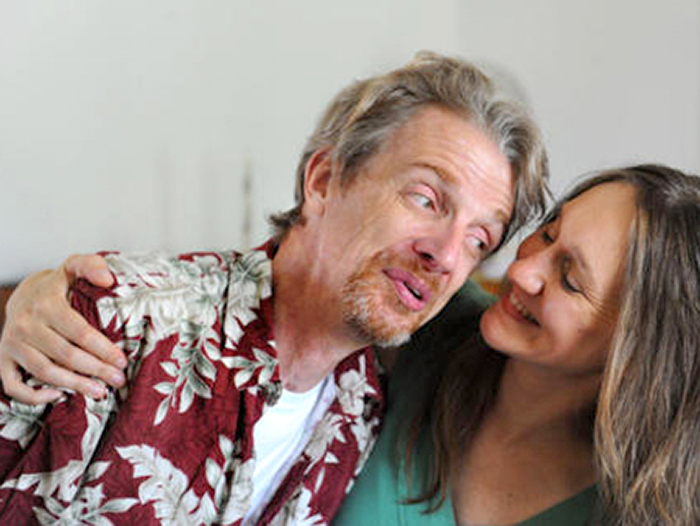Michael Buettner and his fiancee/caregiver Janet Thomas in their Redondo Beach home. Buettner suffered a traumatic brain injury during heart surgery in 2009 and is slowly recovering. A fundraiser to help with his care is Saturday at their church, Resurrection Lutheran Church in Redondo Beach. (Brad Graverson / Staff Photographer)
Brain Damage Victim: 'I'm in Here'
THEY MET
They met at church, bonded over meals and sealed their relationship after an 11-day trip to the East Coast.
He was a devoted Pittsburgh Steelers fan, she grew up outside Philadelphia. He was a successful financial planner, she was an experienced music teacher. They often spent evenings strolling through Riviera Village and chatting over a beer at their favorite restaurant.
Two years ago, the future for Michael Buettner and Janet Thomas was limitless. Marriage, children, a newly remodeled home.
That was a lifetime ago.
Buettner now has difficulty undertaking routine tasks that come easy for most. The lifelong Redondo Beach resident suffered oxygen deprivation during emergency open-heart surgery two years ago to replace an aortic valve. Although his heart has healed, his brain suffered severe damage.
Today, Buettner, 45, suffers from memory loss, has trouble speaking and can’t walk without assistance. Although his intellect remains sharp, simple tasks – like standing up – can result in painful setbacks.
“Michael has improved, but he has a long way to go,” said Thomas, 43. “It’s a horrible situation. He can’t hold a job. He can’t walk unassisted. He can’t sit down and read a book.”
Oxygen deprivation, referred to as hypoxia by medical professionals, is a lack of oxygen in the blood, a condition that can be brought on by massive blood loss and cardiac arrest.
It often disrupts the cerebellum – the sensitive part of the brain responsible for speech, balance and eye movement, according to Dr. Mark Morrow, chairman of the Neurology Department at County Harbor-UCLA Medical Center.
“The brain depends on all the other organs working well,” Morrow said. “The brain is the innocent bystander. It is the center of the body and everything else exists to feed it what it needs to operate.”
Recovery for victims of oxygen deprivation and other brain injuries is often a long and arduous journey, exemplified by Buettner’s struggle to regain normalcy. Recovery often involves working to open neurological circuits in the brain and relearning tasks to direct functions through alternative pathways.
“Recovering in part depends on making the system work,” Morrow said. “I think it’s a combination of repetition and challenging the system, too. That’s where physical therapists and occupational therapists are indispensable.
To some extent, damaged cells may never come back,” Morrow added. “But you still have collateral pathways that kick. The brain is an amazing thing in terms recovery.”
So Buettner works – with Thomas at his side for each step – to relearn tasks that once came easy. He attends an adaptive physical education program at El Camino College several times a week.
Although Thomas said Buettner has shown much progress, money is tight. Buettner, an adopted child, grew up in a crowded home – his now-deceased parents help raise 69 foster children. Although Buettner remains close with one of his foster sisters, Thomas and her sister, Lynne, are responsible for Buettner’s care.
AWAKENING
Buettner receives a Social Security check each month that just covers his $1,700 mortgage payment. His health insurance payments are more than $800 a month, and many therapy sessions are no longer covered. Their savings has been drained.
“We’re in the red every month just paying bills,” Thomas said.
A fundraiser for Buettner will be held Saturday. Thomas said she hopes to be able to raise enough money to help pay for a part-time caregiver for her fiance or a walking device the would help him relearn to walk.
Buettner’s disability has not only exacted a physical toll. The mental and emotional burden can be overwhelming.
“I’m at a breaking point,” Thomas said. “I need support. I can’t run down to go get gas, I can’t run to the store. I can’t remember the last time I walked on the beach.”
Thomas points to their strong faith in God and close ties to their church community as motivation for moving forward with optimism and hope.
“There has been an awakening – an awareness and appreciation for life,” she said. “I’m just happy Michael is here.”
Thomas said members of their church have stepped in with donations and dropped by Buettner’s house to help with his therapy.
“The church has surrounded him and kept him in the forefront of their mind,” said the Rev John Conrad of Resurrection Lutheran Church, who pointed to Thomas’ dedication and devotion to help her fiance through the past two years.
“They were at the point of about to be officially engaged,” Conrad said. “She chose to stick with him through all of it. It is just amazing.”
Thomas lives with Buettner at his Redondo Beach house and spends nearly every waking hour with him, taking him to his therapy classes, holding his hand, helping him walk, teaching him how to speak again. Like they did two years ago, Buettner and Thomas look to the future with high aspirations.
Maybe one day Buettner will be able to walk again, hold a long conversation, enjoy a few beers with friends.
“I’m in here,” Buettner said through Thomas, his voice heavily slurred, his eyes beginning to tear as he pointed to his head. “It’s tough to express myself to the outside world. Everything from before is in here. I can’t find a way to get back to that person.”
In the meantime, Buettner and Thomas say they try to enjoy their time together. They look forward to the good days, often brought on by something seemingly simple: A visit from a friend or a familiar song on the radio. A shared story. A cup of tea while sitting in chairs on their lawn, the feel of the soft grass under their bare feet.
On a recent morning, Buettner seemed to have difficulty expressing himself with two visitors. His frustration was palpable. His mood swings are erratic because of the brain injury. And Thomas is the only one in the room able to understand him, so she held his hand and gently touched his face.
“It’s OK, Michael,” she said. “We know you’re there, we can hear you. You’re doing great.”


